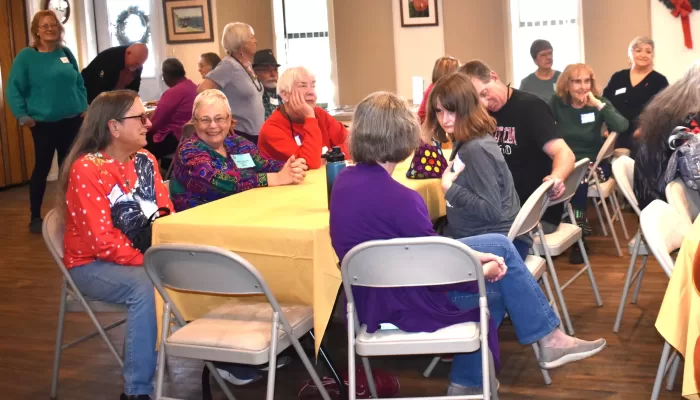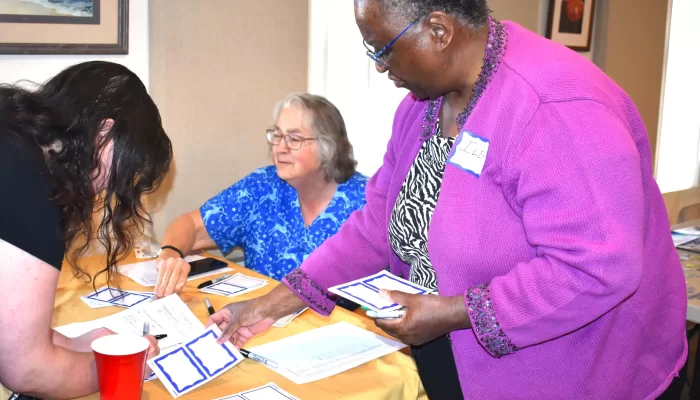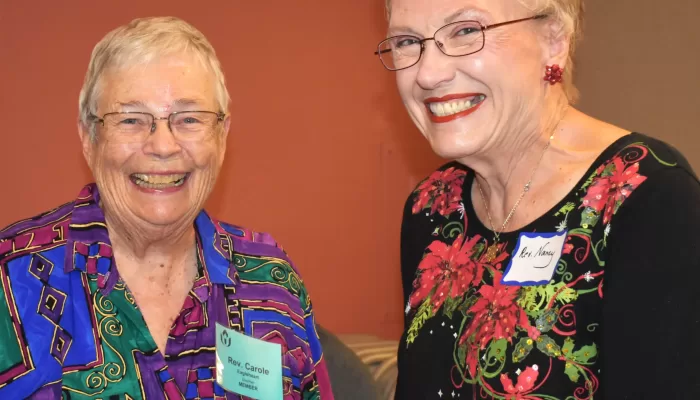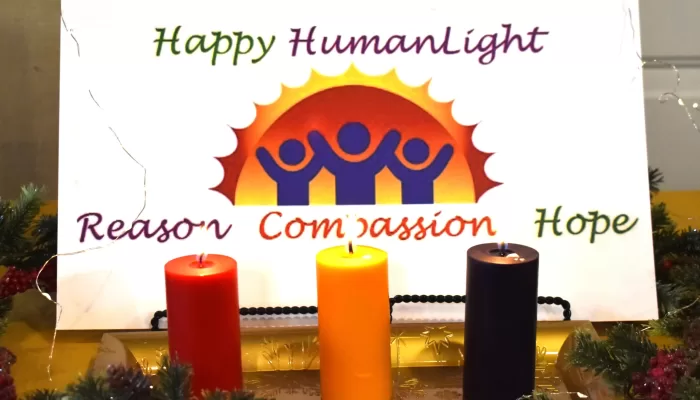Humanism at UUWC
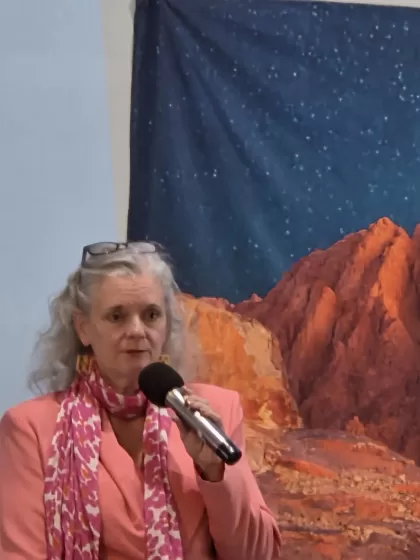
Kathleen Cates, NM Representative for House District 44, previewed the 2026 NM Legislative session. The Humanist Group took a leading role in organizing the presentation held Jan. 10, 2026, at UUWC in partnership with the Democratic Party of Sandoval County.
________
The Humanist Group hosted a Human Light Celebration on Dec. 23, 2025 at UUWC. Click through the slide gallery below to see the people who attended and the activities.
Photos by Doris Moore
—–
The December 2025 issue of Humanist News issued by the International Humanist Association is available here.
——
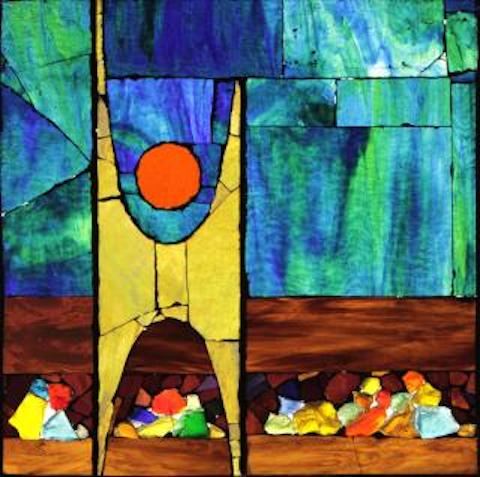
Welcome
The UUWC Humanist Group was officially recognized by the Council on April 14, 2024. All are welcome as we find ways to put Humanism into action at UUWC and the wider community.
Our first project was a Sunday service presenting the dangers of White Christian Nationalism with a resource guide and suggestions on how to oppose it. A link to the You Tube video of the presentation, and the resource guide may be viewed at https://youtu.be/7Jc7xOTJdJI. Our second program was a play depicting the founding of the Unitarian association in Boston in 1825. In December 2025 we presented our first Human Light celebration.
Meeting dates have been set as 10 am on the Third Saturday of each month.. You can always check the Events calendar for the date and time of a monthly meeting. We meet in the Conference Room.at UUWC, 1650 Abrazo Rd NE, Rio Rancho. Please use the Courtyard Entrance.
If you are still with us, please continue to scroll for a definition of Humanism and some reading and resource suggestions.
DEFINITION OF HUMANISM
Humanists base their understanding of the world on reason and science, rejecting supernatural or divine beliefs. Humanists reject all forms of racism and prejudice and believe in respecting and protecting everyone’s human rights including the right to freedom of religion and belief. Definition is taken from the Unitarian Universalist website, https://www.uua.org/.
Humanism is a focus on what we do as human beings to make the world a better place.
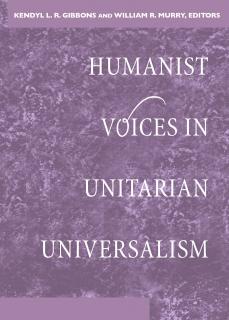
This short book of short essays is written by various UU ministers and others. It is an easy read, and we highly recommend it for anyone just getting interested in Humanism. The book is available in the UUWC library.
SUGGESTED RESOURCES
Unitarian Universalist Humanism
Humanism is non-dogmatic and open-ended. It is the belief that human beings are the source of meaning and values. It is a scientific search, self-correcting and open to change with new knowledge and new insights. Humanism is deeply concerned with ethics and values, but rather than telling people what they should or should not do, it assists their search for values and attempts to help them achieve their full positive potential as human beings. Humanists see humanity as having the capacity for continued growth and development, and they accept responsibility for encouraging that growth.
— An unsigned pamphlet used by the Humanist Association in Portland, Oregon.
Suggested Resources:
Latest News from Humanists International is available here.
“Reason and Reverence: Religious Humanism for the 21st Century,” by William R. Murry, Skinner House Books, 2007
“Humanist Voices in Unitarian Universalism,” by Kendyl L.R. Gibbons and William R. Murry, editors, Skinner House Books, 2017
https://www.uua.org/beliefs/what-we-believe/beliefs/humanism is the entry on the UUA website of Unitarian Universalist Humanists
https://huumanists.org/ is the website for the UU Humanist Associations
https://www.facebook.com/groups/uuhumanists is a Facebook Page of the Association that you may request to join
Read about the heart of humanism in the essay Faith of a Unitarian Universalist Humanist (PDF, 3 pages) by Sarah Oelberg.
Making the Manifesto: The Birth of Religious Humanism. By William F. Schulz. Skinner House, 2002. (UUA Bookstore. You will find an excerpt here: https://www.uuworld.org/articles/unitarian-universalisms-humanist-legacy
Here is a UUA curriculum introducing youths to Humanism: https://www.uua.org/re/tapestry/youth/bridges/workshop18
This organization reflects the connection of Humanism and Naturalistic Paganism: https://naturalisticpaganism.org/religious-humanism/
Check here for the American Humanist Association Center for Education and its offerings: https://americanhumanistcenterforeducation.org/
Check here for Humanists International: https://humanists.international/
A 2015 sermon by Bruce Clear on Humanism in UU: https://www.uua.org/worship/words/sermon/184058.shtml
Here are Clear’s ending paragraphs:
In 1984, the year after Thomas Dewey signed the Humanist Manifesto, he published a wonderful little book called A Common Faith. In this book, Dewey distinguishes between “religion” (which he describes as a specific set of beliefs, and which he doesn’t like) and “religious” (which is a specific quality of experience, and which he does like). His thesis is that there is a religious dimension to human experience whether or not one holds the beliefs of any specific religion. Dewey speaks out strongly against “religion” as an institutional force, but he urges us to embrace the religious quality of human experience in our lives, with or without a formal religion to go with it. Here is the way in which he describes humanism as religious:
The sense of dignity of human nature is as religious as is the sense of awe and reverence when it rests upon a sense of human nature as a cooperating part of a larger whole…Understanding and knowledge also enter into a perspective that is religious in quality. Faith in the continued disclosing of truth through directed cooperative human endeavor is more religious in quality than is any faith in completed revelation.
Any activity pursued on behalf of an ideal end against obstacles and in spite of threats of personal loss because of conviction of its general and enduring value is religious in quality.
https://bismanuu.com/2023/04/12/humanism-unitarian-universalism/ Is a sermon on UU Humanism and suggests the following sources:
- “The Humanist Controversy and Other Writings” by Curtis W. Reese: This book provides an overview of the Humanist movement within Unitarian Universalism and includes essays, speeches, and other writings by some of its key figures. (Link: https://www.uuabookstore.org/The-Humanist-Controversy-and-Other-Writings-P16754.aspx)
- “Humanist Voices in Unitarian Universalism” edited by Kendyl Gibbons and William R. Murry: This collection of essays and other writings explores the intersection of Humanism and Unitarian Universalism and includes contributions from a diverse group of writers and thinkers. (Link: https://www.uuabookstore.org/Humanist-Voices-in-Unitarian-Universalism-P17473.aspx)
- “Humanist Manifesto III”: This document, first published in 2003, provides a contemporary expression of Humanist values and beliefs and has been endorsed by a number of Unitarian Universalist organizations. (Link: https://americanhumanist.org/what-is-humanism/manifesto3/)
- “The Transcendentalist Roots of Unitarian Universalism” by William R. Murry: This article explores the relationship between Transcendentalism, Humanism, and Unitarian Universalism, arguing that Humanism can be seen as a continuation of the Transcendentalist tradition. (Link: https://www.uuworld.org/articles/transcendentalist-roots-unitarian-universalism)
- “Unitarian Universalism and the Quest for Humanist Community” by Roger Fritts: This article argues that Humanism is an essential part of the Unitarian Universalist tradition and explores the challenges and opportunities involved in building Humanist communities within Unitarian Universalism. (Link: https://www.uua.org/sites/live-new.uua.org/files/documents/fritts-unitarian-universalism-quest-humanist-community.pdf)








